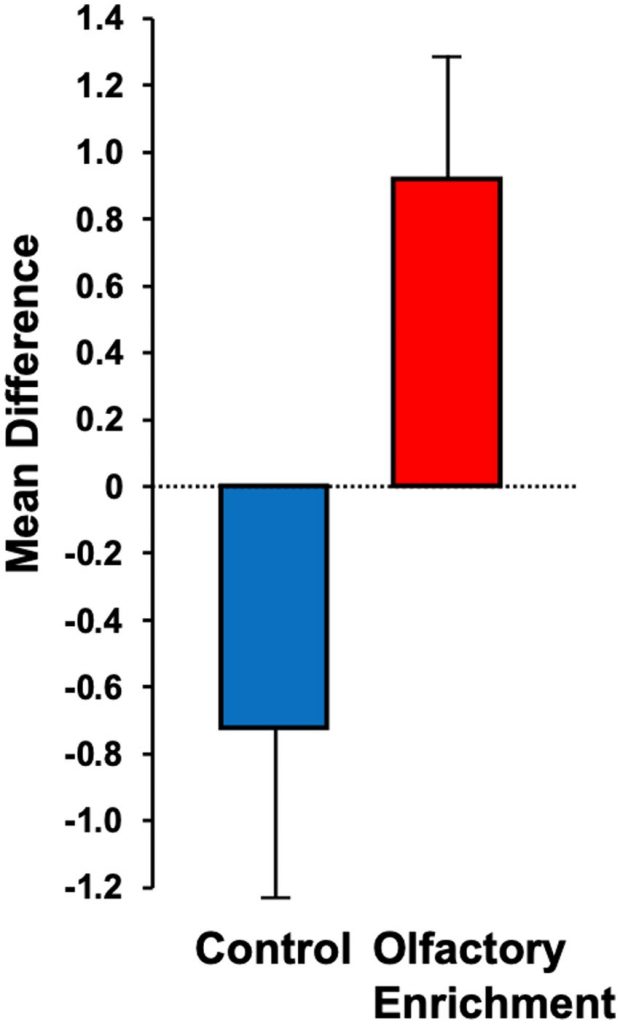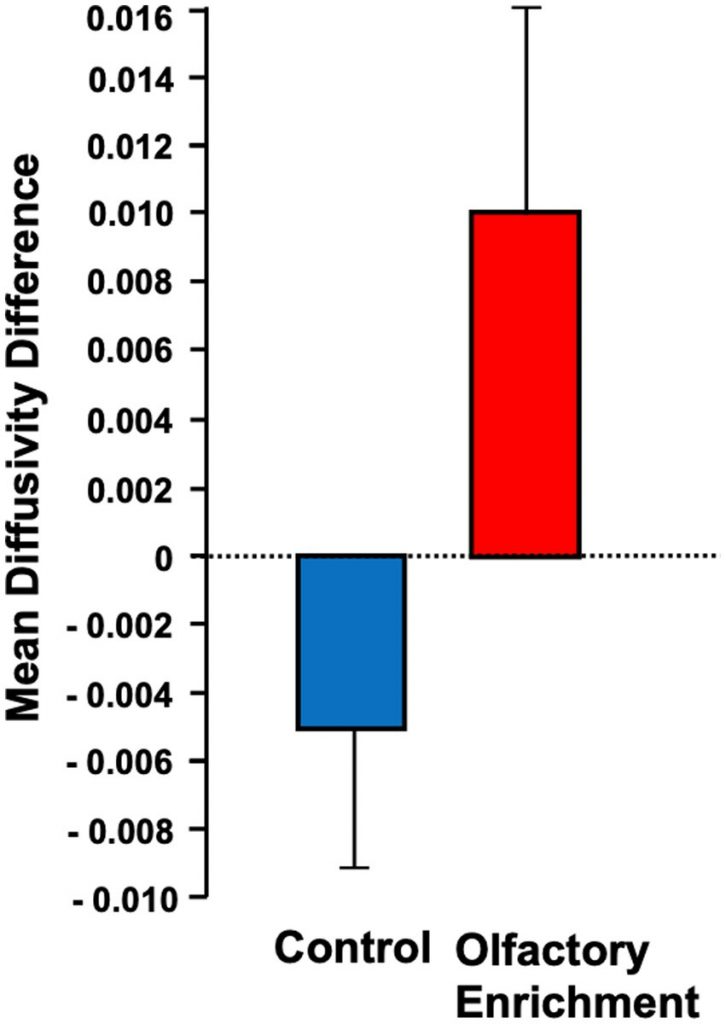Key Points:
- Breathing scented oils during sleep for 2 hours nightly over the course of 6 months improves learning and memory performance.
- MRI measurements indicate that the connectivity of a memory-related brain pathway called the uncinate fasciculus is strengthened by scented oil treatment.
With age, our sense of smell begins to deteriorate, especially after the age of 70. Such olfactory deficits are associated with neurodegeneration, cognitive impairment, dementia, and all-cause mortality. This means our ability to smell is closely tied to brain aging and longevity. Now, scientists from the University of California Irvine (UCI) may have found a way to counter brain aging by stimulating our sense of smell.
Woo and colleagues report in Frontiers in Neuroscience that scented oils improve the memory of older adults by 226%. Furthermore, MRI scans indicate that scented oils make positive structural changes to the brain. These findings suggest that highly accessible and affordable scented oils could be used to treat age-related cognitive loss.
Scented Oils Boosts Memory and Enhance Brain Connectivity
Consistency is key when it comes to making noticeable changes. While sniffing odorants has previously been shown to benefit dementia patients, the protocol used was tedious, so Woo colleagues wished to make things easier to promote consistency.
“The reality is that over the age of 60, the olfactory sense and cognition starts to fall off a cliff,” said Principal Investigator Dr. Michael Leon. “But it’s not realistic to think people with cognitive impairment could open, sniff and close 80 odorant bottles daily. This would be difficult even for those without dementia.”
To make things simple, the UCI researchers gave participants a diffuser — a device that disperses essential oils into the air. Additionally, the participants received 7 essential oil vials (rose, orange, eucalyptus, lemon, peppermint, rosemary, and lavender). These vials could be placed into the diffuser and set to run just before sleep.
The study’s first author, Dr. Cynthia Woo, said: “That’s why we reduced the number of scents to just seven, exposing participants to just one each time, rather than the multiple aromas used simultaneously in previous research projects. By making it possible for people to experience the odors while sleeping, we eliminated the need to set aside time for this during waking hours every day.”
The participants were told to diffuse one scented oil each night for two hours. It was found that, after 6 months, the participants saw a 226% improvement in verbal learning and memory when compared to participants who did not receive scented oil treatment.

Woo and colleagues also examined a pathway in the brain called the uncinate fasciculus, which connects the emotional centers of the brain (sometimes referred to as the limbic system) to the control centers of the brain (prefrontal cortex). They chose this region because it’s associated with learning and memory and deteriorates with age and further in Alzheimer’s disease.
Upon analyzing MRI scans, the researchers found that the mean diffusivity of the uncinate fasciculus was increased in participants treated with scented oils. The mean diffusivity reflects the diffusion of water through brain tissue and represents the strength of the neural pathway measured. Thus, these findings suggest that scented oils strengthen this memory-related pathway of the brain.

Overall, the findings of Woo colleagues suggest that inhaling scented oils for just two hours a night can mitigate the cognitive loss associated with aging by preventing the deterioration of a key memory-associated neural pathway.
Targeting Our Sense of Smell to Counter Aging
“The olfactory sense has the special privilege of being directly connected to the brain’s memory circuits,” said collaborating investigator Dr. Michael Yassa. “All the other senses are routed first through the thalamus. Everyone has experienced how powerful aromas are in evoking recollections, even from very long ago. However, unlike with vision changes that we treat with glasses and hearing aids for hearing impairment, there has been no intervention for the loss of smell.”
Previous human and animal studies have shown that odorants like essential oils can mitigate the effects of brain aging, including brain inflammation. Essential oils are concentrated plant extracts that contain small, fat-soluble molecules called terpenes and terpenoids that can be absorbed through the skin or nasal passage into the bloodstream to exert their biological effects. Essential oils can be purchased online or in stores at a relatively low cost.